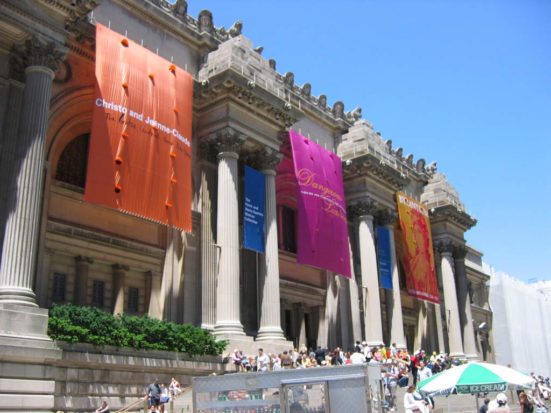
May 5, 2017; New York Times
The relationship between the City of New York and the Metropolitan Museum of Art precludes its charging a mandatory fee for admission. Instead, it asks each patron for a “recommended” contribution of $25. That’s because the city owns the building that houses the Met and gives the museum around $26 million each year in tax dollars.
Lawsuits filed over the past few years have challenged the museum for not being clearer about the voluntary nature of that charge. The resulting settlement, confirmed last week, requires that the museum state clearly on its signs and websites that the amount visitors pay is up to them and to describe the $25 entry charge as “suggested” rather than “recommended.” As a result, the museum has filed a formal proposal with the city to establish a mandatory admission fee to out-of-state visitors. In-state visitors would continue to be charged a voluntary fee.
Lawyers for the plaintiffs in the original suits take issue with this new wrinkle. Michael S. Hiller argued in court that the measure would violate a 1893 state law that requires that the museum’s collections “shall be kept open and accessible to the public free of all charge throughout the year.”
Sign up for our free newsletters
Subscribe to NPQ's newsletters to have our top stories delivered directly to your inbox.
By signing up, you agree to our privacy policy and terms of use, and to receive messages from NPQ and our partners.
“The court would be authorizing the museum to charge an admission fee,” Mr. Hiller said, adding that this would “violate that law.”
It’s unclear that the measure would be a sure road to additional sustainable revenue, since some believe it might place the city’s $26 million in annual public support at some kind of risk. Mayor Bill de Blasio says the change would not necessarily mean less revenue from the city—but that “not necessarily” should be seen as an important qualifier.
The recommended fee generated about $39 million in FY 2016, and museum officials believe there might be tens of millions more in that pot with this requested change, but the potential loss of a guaranteed amount may in the end weigh too heavily on the other side of the scale.—Ruth McCambridge













